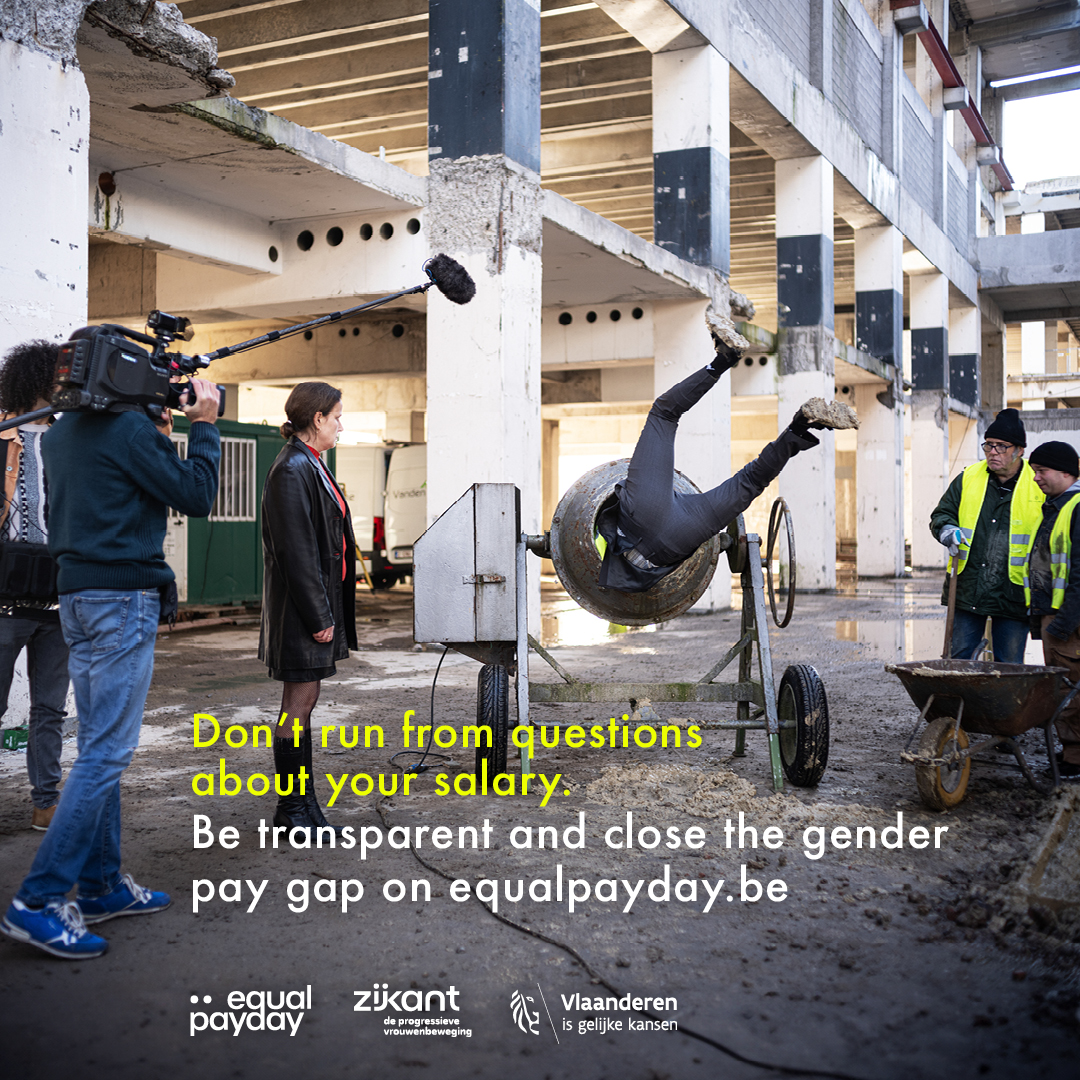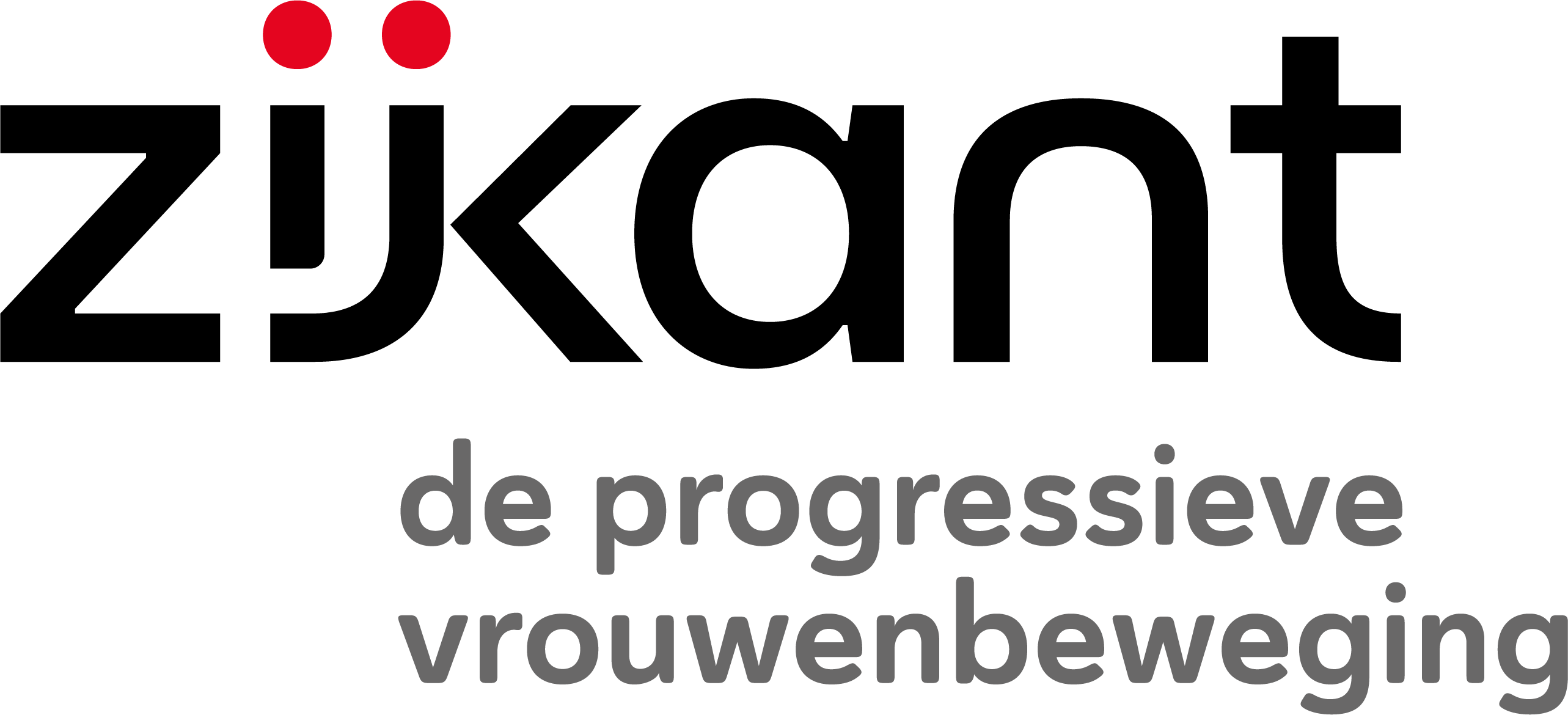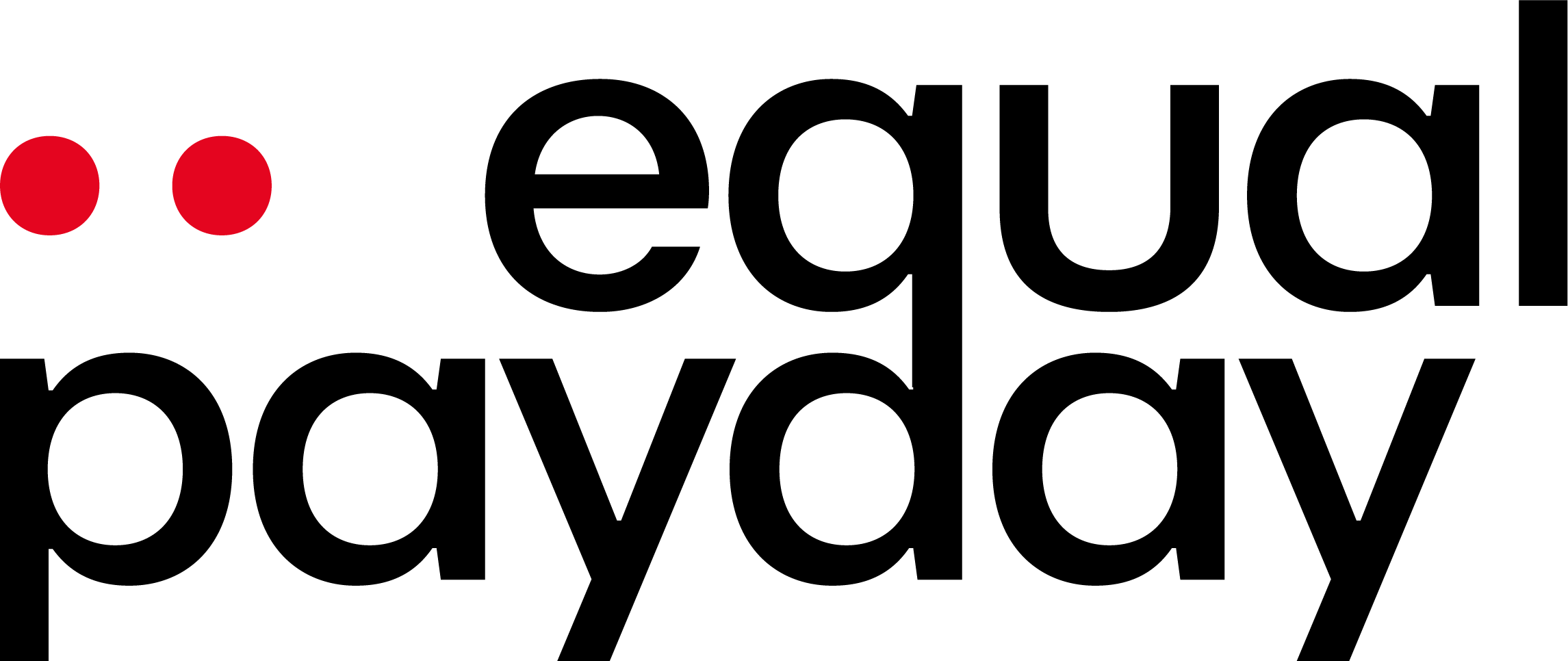
An inconvenient question
How much do you earn? It remains an uncomfortable question. This is proven by a survey ZIJkant commissioned from Ipsos. Half of Belgians know nothing about the salary package of friends or colleagues, let alone that of their manager. An equally high proportion does not talk about their own salary with colleagues or their boss. Women appear to be the biggest victims of this taboo: more than six in 10 have no idea about some colleagues’ pay, more than seven in 10 are in the dark about their superior’s pay package. With the latter, they rarely discuss their own pay.
The lack of transparency contributes to the gender pay gap. It still stands at 21%, which is why ZIJkant is already organising an Equal Pay Day for the 20th time. This year, Equal Pay Day falls on 17 March 2024.
To break the taboo, ZIJkant will campaign at railway stations in Flanders and Brussels on 18 March: passers-by can choose which uncomfortable question they prefer to answer, the one about their sex life or the one about their pay. On 20 March, we welcome, among others, European Commissioner for Equality Helena Dalli to the panel discussion ‘Let’s talk about money’.
The pay gap in average gross annual earnings is still 21%, according to the latest statistics from the Institute for Gender Equality (data year 2021). The symbolic date of Equal Pay Day therefore falls on 17 March. With this, we made a small advance: the pay gap closed by 0.6 percentage points compared to 2020 figures. If we move up barely 4 percentage points in 7 years, we will have to wait at least another 37 years for equal pay.
CAMPAIGN 2024: An inconvenient question
This year we ‘celebrate’ the 20th edition of Equal Pay Day, though of course there is little cause for celebration. The pay gap is tenacious, and that has a lot to do with the fact that we confess more easily about sex than about pennies. People perform crazy escapes when asked how much they earn.
Communication agency mortierbrigade and production house Czar went to work for Equal Pay Day on the stress reactions that the ‘inconvenient question’ evokes in men and made another thought-provoking campaign spot, which will be launched on 17 March, Equal Pay Day itself.
RESEARCH IPSOS: Wages are taboo
To identify the taboo surrounding wages, research firm Ipsos conducted an online survey of 1,000 working Belgians (18+), including an equal number of men and women, on behalf of ZIJkant. It probed their knowledge about the pay package of friends, colleagues (with and without a similar job) and managers. Respondents were also asked to what extent they talked about their own pay.
Most respondents work full-time (79%). Respondents with student and flexitime jobs and sole traders were not retained. The vast majority are white-collar workers or have a management position (78%), 16% are blue-collar workers and 6% have other positions (self-employed, liberal profession…). Half work in a company of more than 200 employees. 59% are from Flanders, 11% from Brussels and 30% from Wallonia.
The results confirm suspicions:
1) We know little about the pay package of friends, colleagues and managers.
More than half of Belgians (56%) know nothing about the pay package of colleagues with different jobs. 28% have an idea of magnitude here and only 17% know the figures. In small companies, ignorance is higher than in (medium) sized companies.
Among colleagues with a similar job, knowledge is greater, but details nevertheless remain unknown: 35% know the pay magnitude of colleagues doing the same job, but no details. A third of respondents do not even have a clue about orders of magnitude, this rises almost to half in smaller companies.
Not surprisingly, the boss’s salary package is taboo: 66% know nothing about this. This figure is significantly higher among women (74% versus 58%, see also point 3).
Remarkable: even among friends, almost half (44%) are guessing about pay slips, although 42% have an idea of magnitude here. The exception here are young people, who clearly have a better idea of what their friends earn (50% know major order, 27% also know the details). This transparency clearly disappears once people start making a career: from the age of 35, the majority do not know what friends earn. Self-employed people are best informed.
2) We do not talk about our pay with friends, colleagues and managers.
Towards colleagues with non-comparable jobs, half do not talk about wages (51%). There is more taboo in Flanders (54%) than in Brussels (43%) and Wallonia (46%). In larger companies, openness is greater than in small structures.
More than a third of Belgian workers (35%) also remain silent towards colleagues with similar jobs. A third sometimes talks about this superficially. Here, too, there is a greater taboo in smaller companies. Younger employees are clearly less hesitant to open up than older employees. Here, too, we see that in the south of the country it is easier to talk about pay than in the north.
It is also striking that 53% do not talk about their pay packet with a supervisor, while this should be just the person with whom you bring up this subject. Only 19% do so.
The fact that young people value transparency more highly is confirmed by the figures: 61% of 18-24-year-olds and 51% of 25-35-year-olds talk openly about wages with friends. However, this seems to change once they start making careers. From the age of 30, wages are only discussed superficially. Older workers keep their lips tightly sealed.
3) Women are particularly affected by the taboo.
This study seems to confirm that the taboo around pay perpetuates the pay gap. Women score significantly lower than men in terms of knowledge about the pay of others (64% of female respondents have no idea about the pay of colleagues with a different job, 40% are not aware of the pay package of employees with a similar job). Also, almost half of men know (approximately) what pay package their boss has, compared to only a quarter of women.
The lack of knowledge also coincides with a silence about their own wages: women do not talk about this with colleagues with similar positions (38%), nor with other colleagues (57%) and certainly not with a supervisor (61%). This suggests that women also negotiate less than men, as among the latter, 45% never discuss their own pay with their boss.

